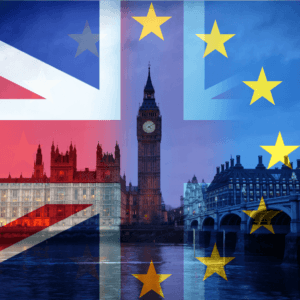Article 50 – Brexit as an Expat
On the 28th of March, Prime Minister Theresa May signed Article 50, thereby triggering the beginning of the Brexit process. But what does Brexit as an Expat mean?
We’ve discussed what Brexit as an Expat means for expats and prospective expats several times on this blog. However, now that the process has actually begun, it’s important for us to revisit the subject. This time, we’d like to offer more practical advice on dealing with the financial fallout of Brexit as an expat. Whether you’re already and expat or you’re just considering moving abroad, you’re probably concerned about how the situation is going to affect your income and your way of life. There’s no denying that Brexit will cause financial chaos for the expat community. When the UK leaves the EU, many of the guarantees and laws that protect expats’ rights and incomes may no longer apply. However, you can insulate yourself from the effects of Brexit:
-
Looking at a pension transfer is more important than ever
Accessing a UK pension from a European country can be difficult, due to the differences between UK and EU regulations. Once the UK and the EU separate completely, the gulf is likely to get wider. Luckily, a pension transfer can help bridge the gap and ensure that you can access the pension money that you’re entitled to, wherever you are in the world. If you’re planning on retiring abroad, we can help you with a pension transfer that meets your needs.
-
Investments can help absorb the devaluation of the pound
Following Brexit, there is a reasonably high probability that the pound will become less valuable relative to the euro. This means that your savings and pension may be less valuable in real terms outside the UK. One way to limit the impact this has on you is to create a low-risk investment portfolio. The money earnt from your investments should more than make up for the value you lose due to the devaluation of the pound. Of course, accruing wealth through investment is never a bad idea, even if you don’t need to compensate for currency devaluation. We offer an low cost expat investment platform that should enable you to put together a suitable portfolio. You may also wish to consider changing your savings from sterling to euros before the value of the pound has a chance to decrease.
-
Offshore current accounts can help you avoid complications
If you have a lot of liquid capital currently held in a UK bank account, you may wish to consider moving it to an offshore account. This will help ensure that no complications arise when you attempt to access your money from abroad after Brexit. Of course, the risk of current account access being affected by Brexit is small. Nonetheless, it’s always better to be safe than sorry.
If you’d like more advice on dealing with Brexit as an expat, don’t hesitate to get in touch. We offer expert expat financial advice globally.
For advice on the financial aspects of moving abroad, contact us at Harrison Brook today.
The information contained herein is for informational purposes only which is subject to change and should not be relied upon. You should seek advice from a professional adviser before embarking on any financial planning activity.


